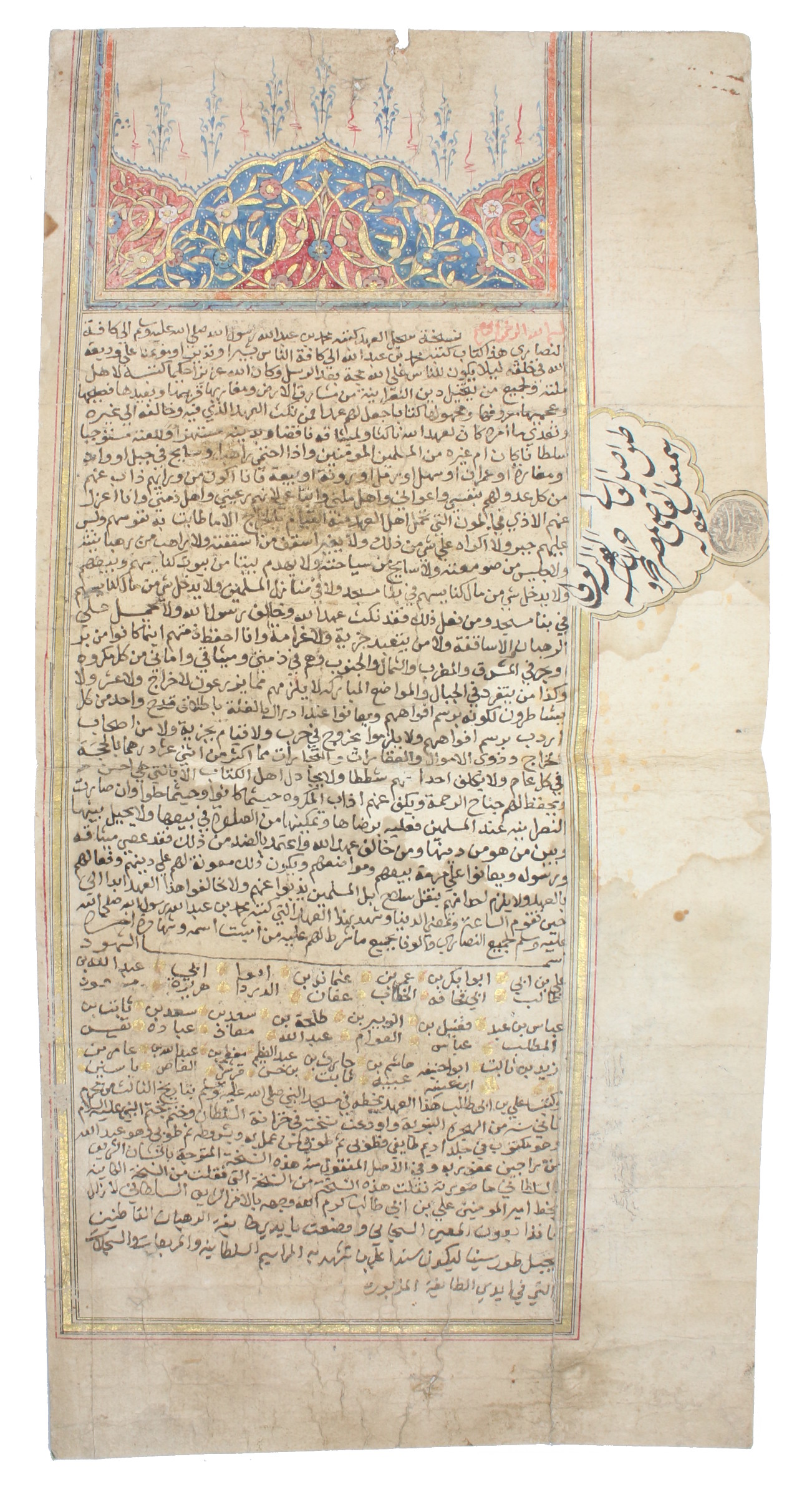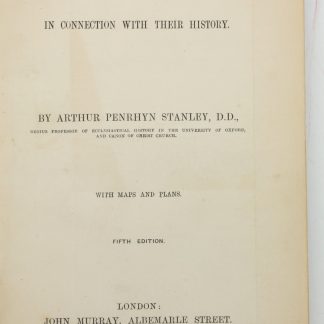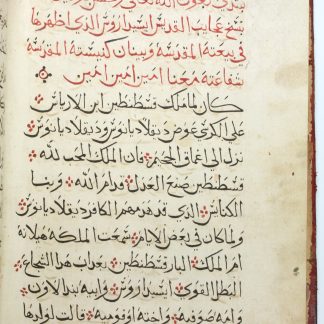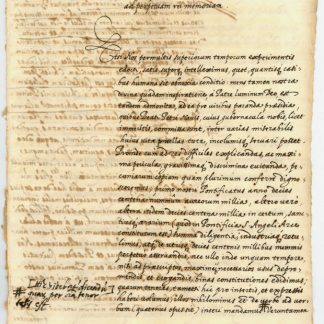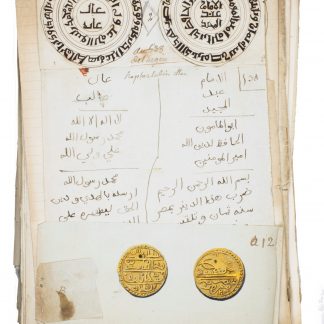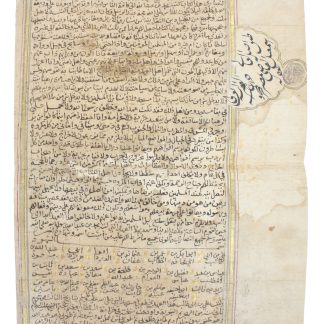Granting protection to the followers of Jesus
Ashtiname of the Prophet Muhammad, for the Christians of Egypt. Legal document certified by Isma'il, the Ottoman qadi of Egypt.
Folio (213 x 442 mm). Black naskh on paper, decorated with an illuminated sarlowh in red and blue. Mounted on cloth.
€ 35,000.00
Almost unobtainably rare 18th century copy of the "Ashtiname" (Covenant), a charter granting protection and other privileges to the followers of Jesus, issued to the Christian monks of St Catherine's Monastery, Sinai, by the Prophet Muhammad and dated Muharram of the year 2 of the Hegira. The Prophet assures Christians of the protection of their property as well as their places of worship, among other privileges, indeed exempting them from all "that which may disturb them; of the burdens which are paid by others as an oath of allegiance. They must not give anything of their income but that which pleases them; they must not be offended, or disturbed, or coerced or compelled. Their judges should not be changed or prevented from accomplishing their offices, nor the monks disturbed in exercising their religious order, or the people of seclusion be stopped from dwelling in their cells" (transl. by A. F. Haddad).
No more than a handful of copies exist of this famous document from the early history of Islam. While the authenticity of the text has been called into question by scholarship, the history of its reception over the centuries makes it an important and fascinating work. It has been argued that the "Ashtiname" is a resource for building bridges between Muslims and Christians; recently, it has served as the inspiration for The Covenants Initiative, which urges all Muslims to abide by the treaties and covenants that were concluded by Muhammad with the Christian communities of his time.
The supposed original document, which was given by the Prophet Muhammad to the monks of St Catherine's Monastery in Sinai, was confiscated by Sultan Selim I during his campaign in Egypt and Syria in 1516/17. Subsequently, numerous copies were drawn up so as to renew the protection offered to Christians. Their authenticity is assured by the certification of a qadi, our document bearing the signature of the qadi of Egypt, a certain Isma'il, affixed by way of a seal in the right margin of the document.
Minor repairs and dampstaining, but well preserved. An extremely uncommon survival.
Provenance: 20th century Parisian private collection, kept in the family for several generations and dispersed in 2022.

